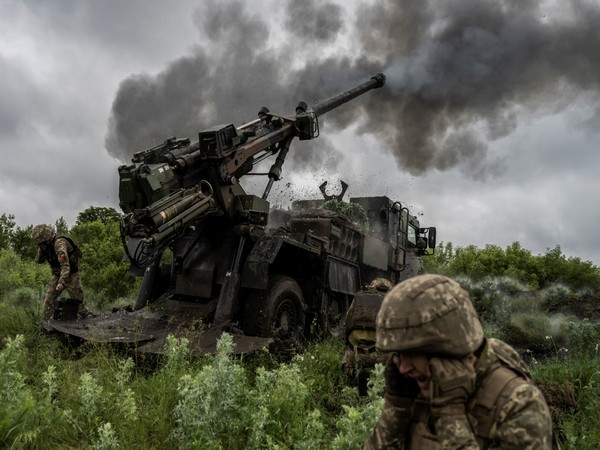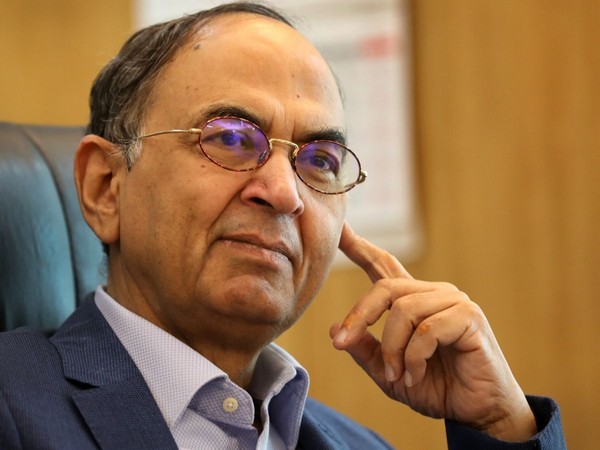
Ukrainian strike hits Crimea bridge
Jun 23, 2023
Moscow [Russia], June 23: A Ukrainian strike damaged a bridge that connects south Ukraine to the annexed Crimean peninsula, a Russian official said on Thursday as tensions again rose over a Moscow-held nuclear power plant. Fighting has increased in occupied parts of Ukraine's south and east with the start of Kyiv's long-awaited offensive and that has included strikes far behind enemy lines. "During the night a strike hit the Chongar bridge. There are no victims," Sergei Aksyonov, the Russia-installed governor of Crimea, said on Telegram.
The bridge connects Crimea, which Russia annexed from Ukraine in 2014, to a part of the Ukrainian region of Kherson that is held by Moscow. Another pro-Russian official in Moscow-controlled regions of Ukraine, Vladimir Rogov, said a second strike had damaged a disused bridge nearby. The Kremlin announced last year that Kherson was also part of Russia, even as fighting was raging there. Ukraine recaptured captured the regional capital shortly after. The Russia-installed governor of Kherson, Vladimir Saldo, said that Ukrainian strikes had hit "bridges" near Chongar, next to photos of what appeared to be gaping holes in a bridge.
Crimea has been regularly targeted by strikes, mostly using drones, over recent months. Moscow last year blamed Ukraine for a blast on the main bridge connecting Crimea to the Russian mainland. 'Blow' to Russian logistics Ukraine's deputy head of the Kherson region said the strike on the bridge was of "great importance". "Firstly, it is a blow to the military logistics of the occupiers," the official, YuriySobolevskyi, said on social media. "Secondly, the psychological impact on the occupiers and the occupying authorities is even more important.
"There is no place on the territory of Kherson region where they could feel safe," he added. Ukrainian military intelligence spokesman AndriyYusov told local television "there will be more" attacks in Russian-controlled territory. Prior to Ukraine's recapture of Kherson last November, its forces repeatedly carried out long-range precision strikes on the nearby key Antonivskyi bridge. The strike overnight on Wednesday came days after Ukrainian forces claimed limited gains in a highly touted counter-offensive to recapture territory that Russia took under its control after launching its large-scale offensive last February.
But Russia said on Thursday that Ukrainian forces in eastern and southern Ukraine were temporarily limiting their efforts to reclaim Moscow-held territory. "After conducting active hostilities over the past 16 days and having suffered significant losses, the enemy has reduced its activity and is currently regrouping," Russian Defence Minister Sergei Shoigu said, in comments carried by Russian news agencies. A 'lie' Separately the Russian FSB security service said it had detained a group of saboteurs recruited by Ukraine, who were planning attacks on railway infrastructure in the partially occupied Zaporizhzhia region.
The Zaporizhzhia region of Ukraine is home to Europe's largest nuclear power plant, which has been a flashpoint of fighting and the subject of talks between Russian officials and Kyiv's allies. "Intelligence services have received information that Russia is considering the scenario of a terrorist act at the Zaporizhzhia nuclear plant-a terrorist act with the release of radiation. They have prepared everything for this," Ukrainian President VolodymyrZelensky said on social media.
The Kremlin rejected Zelensky's assertion that Russian forces could be orchestrating a radiation leak, pointing to a recent visit to the facility by the head of the United Nations' nuclear agency, the IAEA. "This is another lie. There were just contacts with the IAEA at the site-a very high assessment from the IAEA," Kremlin spokesman Dmitry Peskov said. Moscow meanwhile announced that IAEA director general Rafael Grossi would be arriving in the Russian region of Kaliningrad to meet the head of Russia's nuclear agency. - AFP
Source: Kuwait Times









